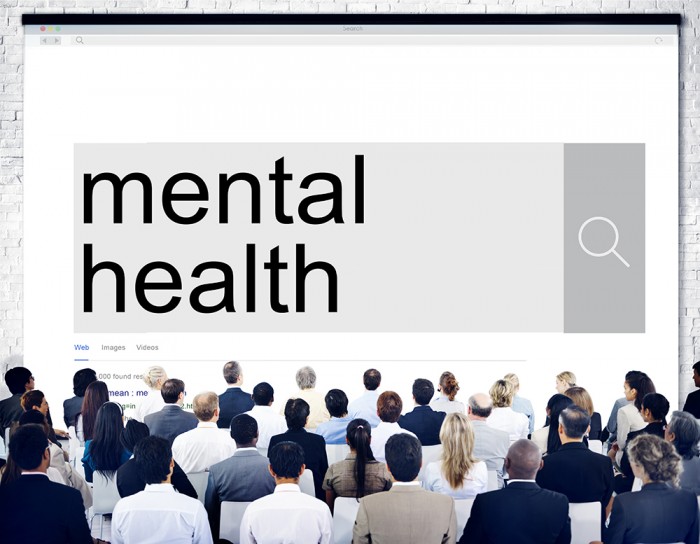Jack Phillips
Gov. Wolf: Mental Health Support is Vital and Available Amid Strain of COVID-19 Pandemic
Relias Webinar: innovaTEL Telepsychiatry Shares Telemental Health Best Practices
As telemental health expands across the country in response to COVID-19, behavioral health providers are having to rapidly train up and transition staff with limited or little experience in delivering services remotely.
We’ve partnered with innovaTEL Telepsychiatry (also a National Council strategic partner) on the upcoming webinar, Ask the Experts: innovaTEL Telepsychiatry Shares Telemental Health Best Practices, to give you:
- Best practices for offering telemental health services at your organization/practice
- Tips to prepare you and your staff as you move to telemental health
- Ways to engage new and established clients when meeting virtually
Join us on Monday, May 11, 2020 at 2:00 p.m. ET to hear from the experts and ask your questions on offering telemental health services.
Register for the Webinar
Also, check out our telemental health resource page for free training courses on telehealth.
NAATP Announces COVID-19 Impact Measurement Tool
COVID-19 Impact Measurement Tool
Dear Members and Colleagues,
NAATP is committed to providing our members, as well as those who care for and support people with substance use disorders, with resources to help you in your important work. Since the onset of the COVID-19 crisis, those who provide addiction treatment and services have needed to make rapid changes in service delivery. Nearly all outpatient, and many residential, treatment providers have adapted some or all services to telehealth. In the midst of a national health crisis and stay-at-home order, the need to provide connection with people who suffer from the isolating disease of addiction is even more critical… [read full letter for details].
Innovative Practice Solutions for Crisis Services During The Pandemic Emergency

All Mental Health Service Providers Will Benefit From This Timely Information
Crisis services have urgent needs. A survey of over 350 crisis service providers showed that the crisis system is experiencing severe challenges. Crisis delivery must be treated with heightened consideration. The study showed that staffing and employee health concerns were paramount as were protective equipment for people in the field. Sustainability was a key concern.
Innovative Practice Solutions for Crisis Services During The Pandemic Emergency
Executive Web Briefing
Friday, April 24, 2020 • 2:00 pm – 3:15 pm ET
View Details
Combating Social Isolation for Seniors during the COVID-19 Pandemic
NATIONAL OLDER ADULT MENTAL HEALTH AWARENESS DAY 2020
Combating Social Isolation for Seniors during the COVID-19 Pandemic
Thursday, May 7, 1:00 pm – 2:30 pm
Thursday, May 7, 1:00 pm – 2:30 pm
Join SAMHSA, the Administration for Community Living (ACL), the Veterans Health Administration (VHA) and the National Coalition on Mental Health and Aging (NCMHA) for a thoughtful discussion, including practical ideas to promote connection and recovery for older adults with serious mental illness and substance use disorders, during this unprecedented time in our history.
Suicide, depression, anxiety, and problems with alcohol and medications are issues that older adults face. The U.S. Census Bureau indicates that by 2030, there will be nearly 75 million Americans over age 65. A 2012 study from the Institute of Medicine found that nearly one in five older Americans has one or more mental health/substance use conditions. According to 2018 data from the Center for Disease Control and Prevention and reported by the American Foundation for Suicide Prevention, adults in the 75-84 and 85 and older age groups are among those with the highest rates of suicide.
Older Adult Mental Health Awareness Day 2020 will include important remarks from Assistant Secretary for Mental Health and Substance Use – Dr. Elinore McCance-Katz, Assistant Secretary for Aging – Mr. Lance Robertson, and the latest information on coping with social isolation and loneliness from University of California San Diego Distinguished Professor of Psychiatry, Dr. Dilip Jeste.
For more information on COVID-19 Response resources see:
SAMHSA Coronavirus (COVID-19) Guidance and Resources
SAMHSA recognizes the challenges posed by the current COVID-19 situation and is providing guidance and resources to assist individuals, providers, communities, and states across the country. SAMHSA stands ready to assist in any manner possible.
ACL Coronavirus disease 2019 (COVID-19) Guidance and Resources
Guidance and resources for older adults, providers, communities, and states.
VA Coronavirus (COVID-19) Resources
VA’s Novel Coronavirus Disease (COVID-19) webpage has the most current information and VA’s Coronavirus FAQs page provides answers to many important questions. Read the latest VA information regarding coronavirus and mental health here.
















